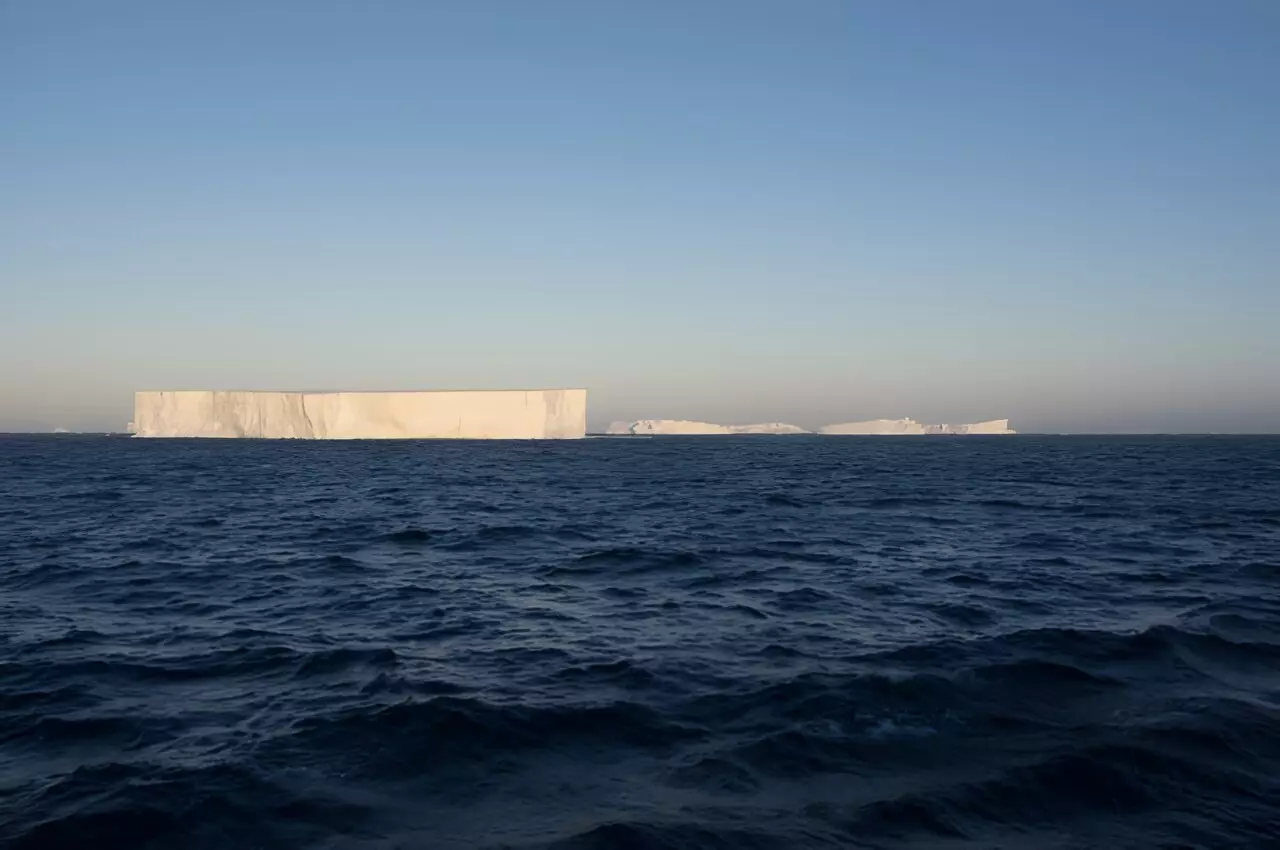The collapse of a giant iceberg in the sub-Antarctic region has brought to light the potential effects of warmer ocean temperatures on ocean ecosystems around Antarctica. This event, which took place in 2017, involved the mega iceberg A-68A calving off the Larsen Ice Shelf on the Antarctic Peninsula and eventually breaking up and melting near the island of South Georgia. The findings of this unique observation have been documented in the journal Progress in Oceanography.
A team of scientists from the British Antarctic Survey (BAS) and National Oceanography Centre (NOC) conducted in-situ ocean measurements during the iceberg’s 4000 km journey across the South Ocean. This research was prompted by the need to understand the impact of icebergs on ocean and ecosystem dynamics in the region. The team found that as A-68A melted, it caused a restructuration of water layers within the ocean, redistributing nutrients that affected phytoplankton growth in the area.
Iceberg A-68A, being one of the largest icebergs ever recorded, raised concerns about its potential impact on the marine conservation area near South Georgia. The fear was that the iceberg might ground on the seafloor and disrupt the local wildlife, such as nesting birds and seals. The findings of this study shed light on the complex interactions between icebergs and marine ecosystems, highlighting the need for further research in this field.
Climate models predict that icebergs may calve more frequently from Antarctic ice sheets in the future due to global warming. By studying the effects of A-68A’s melting on the ocean ecosystem, scientists can gain valuable insights into how future iceberg calving events might impact marine life. This study contributes to a better understanding of the mechanisms involved in transporting freshwater from ice shelves to warmer seas, emphasizing the need for continued research in this area.
The collapse of giant icebergs, such as A-68A, serves as a stark reminder of the interconnectedness of Earth’s systems and the potential consequences of climate change on marine environments. As icebergs continue to calve and melt at an increasing rate, it is crucial to monitor and study their effects on ocean ecosystems to better inform conservation efforts and mitigate any negative impacts. The findings of this study provide a stepping stone for future research in this field and underscore the importance of proactive measures to protect our fragile marine ecosystems.


Leave a Reply